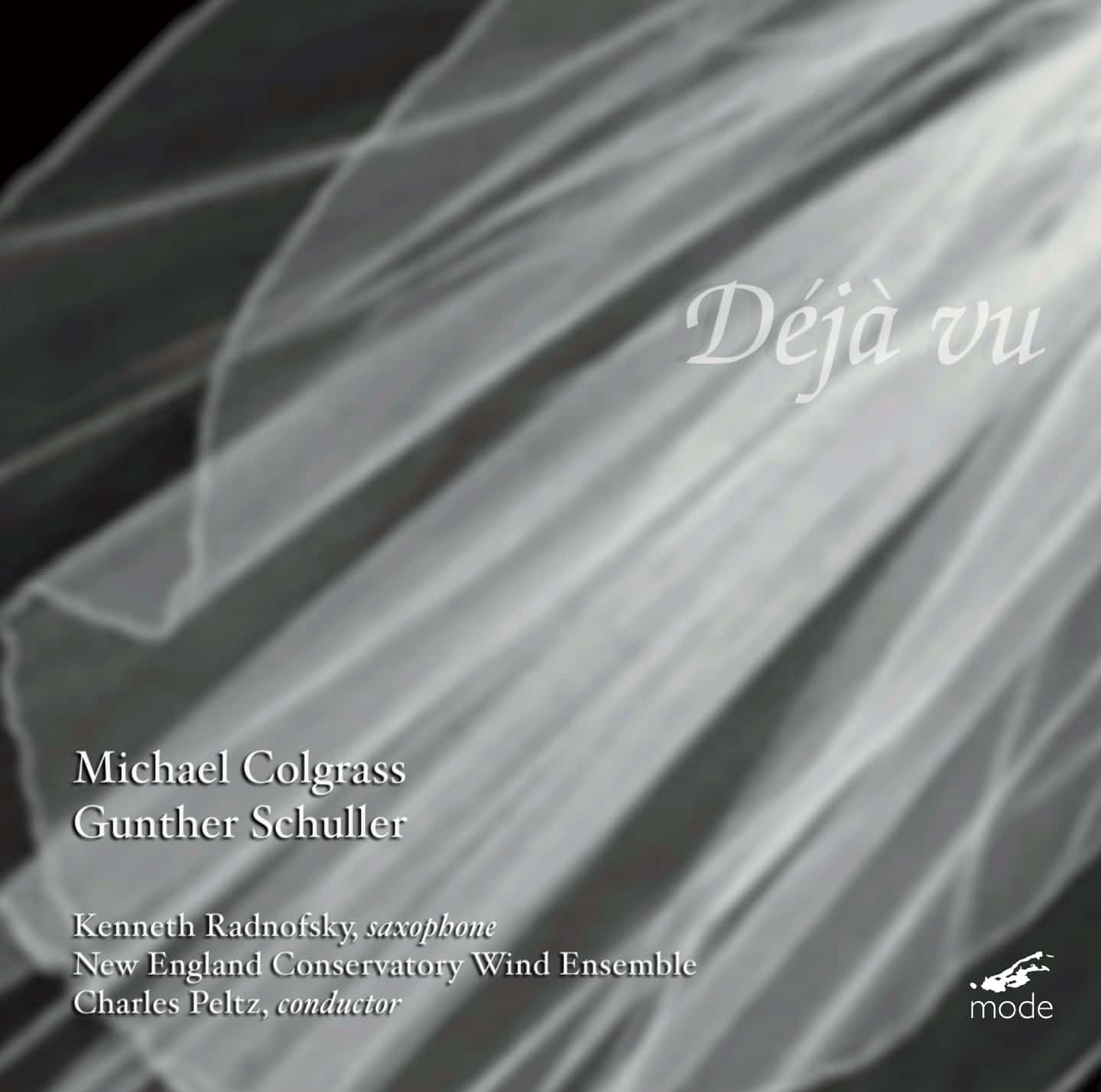MICHAEL COLGRASS (b.1932)
Déjà vu (1977) (16:59)
for percussion quartet and wind orchestra
David Victor, Timur Rubinshteyn, Jeffrey Means, William Klymus, percussion soloists
Dream Dancer (2001) (20:32)
for saxophone solo and wind ensemble
Kenneth Radnofsky, saxophone
GUNTHER SCHULLER (b.1925)
Symphony No. 3 “In Praise of Winds” (1981)
for large wind orchestra
Andante, spaciously; Allegro (6:32)
Moderato tranquillo (11:06)
(To the memory of Alec Wilder, a remarkable musician and uncorruptable human being)
Scherzo (4:12)
Finale Rondo (7:05)
New England Conservatory Wind Ensemble
Charles Peltz, conductor
Michael Colgrass and Gunther Schuller have led lives musically rich in varied influences – performing music of the 19th century tradition, embracing the 20th century innovations of both the academy and the avant-garde, and the exploration jazz and ethnic music. They are composers who enthusiastically cross musical genres and cultures, combining the elements they discover into works of great color and energy.
- The three works on this disc represent extraordinary contributions to the repertoire of wind ensembles and wind orchestras.
- Michael Colgrass is represented here by two works conceived with wide stylistic influences, and featuring soloists positioned both with and against the larger ensemble.
- In 1977, Colgrass received the Pulitzer Prize for Déjà vu, for percussion quartet and orchestra, which joined his early drumming passion with colorful instrumental writing. This transcription of Déjà vu casts new light on this important Colgrass work, the colors of the wind ensemble providing both a vibrancy and immediacy less present in the original. Written as a conversation between the ensemble and the percussion quartet, Colgrass divides the ensemble into two groups to be placed “stereophonically” on the stage.
- Dream Dancer (2001) was premiered by this soloist and ensemble as part of a co-commission of 25 wind ensembles. The saxophone solo is used to exploit the musical styles of three cultures – Arabic harmonic minor, Asian pentatonic and western diatonic – struggling to reconcile them into one kind of music. Early on, the saxophone seems satisfied to respond alternately to these musics and enjoy what each has to offer. But soon a sequence occurs where the soloist feels called upon to make a decision between styles, even moving to different locations onstage to interact with groups that represent each of these musics.
- Gunther Schuller’s Symphony No.3 (1981) – for a minimum of 104 players – transforms the wind band into an agile, graceful and, uniquely powerful ensemble. The ensemble engages in tutti playing for only a relatively small percentage of the piece, most often Schuller uses his enormous palette to paint a series of miniatures, building up to the large canvases only when the music is unable to resist its own momentum. Its’ movements touch upon the music of Alec Wilder, waltzes, aleatoric passages, and big band.
- Conductor Charles Peltz is currently the Director of Wind Ensembles at the New England Conservatory. He has worked closely with John Cage, Michael Colgrass, Gunther Schuller, Lukas Foss, Karel Husa, James McMillan, Augusta Read Thomas and Joan Tower. Past seasons have included appearances with the Lincoln Center Festival, Pacific Symphony, Hamilton Philharmonic, Buffalo Philharmonic, New Jersey Ballet, and concerts with the North American New Music Festival.

